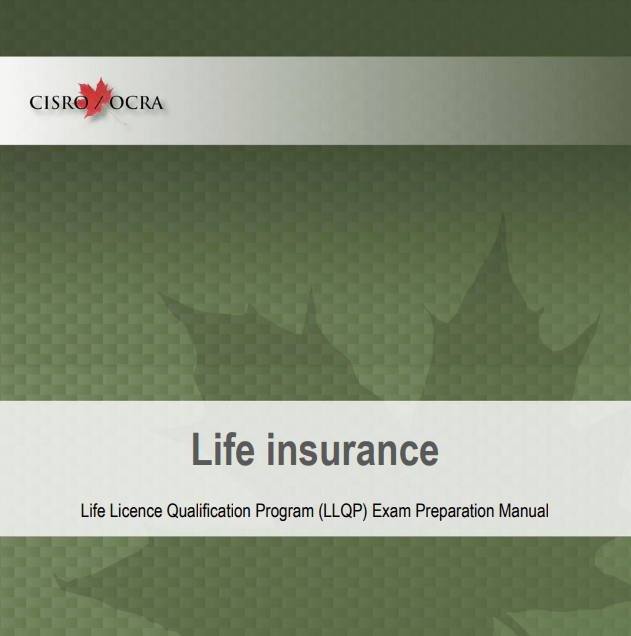Chapter 1: Market Overview(14th-Edition)
The main difference is that a mortgage broker can also be the chief compliance officer, known as the principal broker, of a brokerage.
In addition a broker is able to supervise a group of mortgage agents.
- Brokering a new mortgage, collateral mortgage, line of credit, or other type of loan secured by real property (which is land and whatever is affixed to it)
- Refinancing of an existing mortgage
- Arranging investing in a mortgage by one or more individuals
- Providing mortgage advice and counsel, including about renewal options
Institutional Lender
The Lender is the cornerstone of the mortgage industry. Lenders are generally grouped into two main categories: institutional and private. Institutional Lenders represent the majority of Lenders in Ontario, but private Lenders have always been and will most likely always be a necessary provider of funds for Borrowers who don’t qualify through institutional Lenders. Institutional Lenders consist of Schedule 1, 2 and 3 banks, credit unions, loan and trust companies, finance companies or other corporations constructed to lend money on real estate. Any Lender may also be referred to as the mortgagee.
Private Lender
A Private Lender is typically an individual investor with funds who would like to invest in mortgages. This individual will usually invest through his or her Lawyer who may have clients requiring mortgage financing or a Mortgage Broker. His or her purpose may vary but normally an investor will invest in 2nd mortgages due to their higher rate of return when compared to 1st mortgages and other potential types of investments such as GICs or bonds. Any Private Lender may also be referred to as the mortgagee.
Borrower
The Borrower is called the mortgagor and is the individual or individuals who are taking the mortgage loan and pledging their property as security.
Institutional Mortgage Originators
Several financial institutions now have their own Mortgage Origination teams, often referred to as Road Warriors, who actively seek Borrowers for them. These Originators are compensated by their institution and are not considered to be Brokering a mortgage transaction since they are using only one Lender. The major differentiating factor between an Institutional Mortgage Originator and a Mortgage Broker is that, while both are dedicated to providing the best solutions to their clients, Institutional Mortgage Originators can only place their clients with the Lender by whom they are employed and therefore do not have access to all of the different products available in the market.
Real Estate Agents
The Real Estate Agent is the individual who Brokers the purchase and sale transaction between a vendor (seller) and the purchaser. This individual is employed by a licensed Real Estate Broker, has met licensing guidelines and is a member of a local Real Estate Board. Real Estate Agents are a vital link in the process of purchasing and selling real estate and are therefore of considerable importance to the Mortgage Broker in regards to obtaining clients. More information on Real Estate Agents can be found through the Ontario Real Estate Association (OREA) at www.orea.com.
Real Estate Appraiser
The Real Estate Appraiser also plays a vital role in the real estate process, especially from the standpoint of the Mortgage Broker. The Appraiser determines, in the case of financing, the market value of the property to be mortgaged. Real Estate Appraisers do not have to be licensed in Ontario, but unless they have a professional designation, no Lender will accept their appraisal for financing purposes. There are several methods used to determine the market value of a property, as well as several methods of completing an appraisal. These topics will be covered in the Chapter 14: Application Analysis – The Property.
Home Inspectors
Home Inspections began as a consumer service in the 1970s and have grown in popularity since then. A qualified Home Inspector will advise the home purchaser / homeowner in regards to the condition of the home and advise regarding issues surrounding its condition. The condition of the home naturally affects the market value. More information on Home Inspectors in Ontario can be found through the Ontario Association of Home Inspectors (OAHI) at www.oahi.ca.
Mortgage Default Insurer
The Mortgage Default Insurer provides mortgage default insurance policies to Lenders typically offering high ratio mortgages, although default insurance can be provided on a mortgage loan of any Loan to Value. The main insurers in the Ontario market include the government insurer, the Canada Mortgage and Housing Corporation (CMHC) and the two private insurers, Sagen and Canada Guaranty.
Lawyer
A Real Estate Lawyer is the professional involved in a real estate transaction who performs the following tasks:
Negotiating and drafting Agreements of Purchase and Sale
Acting for buyers or sellers on new home, condominium or re-sale home purchases or sales
Acting for Borrowers or Lenders on mortgage transactions, including preparing documents and registering documents
Mortgage Creditor Insurer
A mortgage creditor insurer is an insurer that provides a policy to the mortgage Borrower so that upon a claim (in the case of death; there are additional creditor insurance policies available) the mortgage loan is paid by a one time lump sum payment to the Lender. This insurance is specific to the mortgage loan.
Title Insurer
A Title Insurer is an insurer that provides a policy which provides coverage for the insured’s title. It can compensate the insured for real losses associated with covered issues found in the terms of the policy. For example, if there is an old mortgage on title that was never discharged and this prevents the property from being conveyed to the purchasers, the title insurance policy will take steps to remedy this situation. It also assists in streamlining the closing process (the process of the Lawyer closing the mortgage transaction), protects against fraud and forgery and is available on purchases, refinances and to homeowners who did not obtain a title insurance policy on either of those occasions.
Mortgage Administrators
A Mortgage Administrator is a person or entity that services a mortgage loan on behalf of another. For example, a Mortgage Administrator may process payments, renewals and discharges, provide correspondence and act to collect mortgage arrears for a Lender that has contracted them. Under the Mortgage Brokerages, Lenders and Administrators Act, 2006, Mortgage Administrators are licensed in Ontario. Regulation 406/07 of this legislation defines a Mortgage Administrator as one who is “Taking steps, on behalf of another person or entity, to enforce payment by a Borrower under a mortgage”.
In 1954 the Bank Act was changed to allow banks to lend on residential mortgages; however there was a limit to the amount of interest that they could charge. This limit was set at 6%. Unfortunately the market at the time saw interest rates at such a point that it was unprofitable for banks to lend based on that constraint, so the market remained dominated by life insurance companies until that cap was removed. That occurred in 1967 when the Bank Act was once again amended. This amendment removed the 6% cap and virtually overnight the banks became the predominant source of mortgage funds in Ontario. Today banks account for approximately 61% of all mortgages held in Canada and have a virtual lock on mortgage lending.
A market for Borrowers who do not qualify for traditional lending products
Several sub-prime lenders have scaled back on their programs or cancelled them altogether due to a lack of investors to purchase sub-prime mortgage pools. Several other sub-prime lenders have been forced to close their operations.
Institutional lenders, specifically Banks.
They are the property, appraisal, environmental assessment, income, lenders and timing.
85% LTV, although this may decrease if the credit market continues to face difficulties.
I would suggest that he or she understand the risks involved, particularly since the market has seen a downturn in housing prices. In other words, the return is not guaranteed. In addition it can take several months to get the money back since you cannot sell a mortgage as easily as a stock, in other words it is not a liquid asset. The investor must also be confident in the value of the property, knowing how to read an appraisal and must be able to interpret a credit report and determine if income documentation is accurate. The investor must also know that he or she should have an administration company or a lawyer administer the mortgage, all of which can reduce the overall return on investment. It can be a very high rate of return but there is risk!
They can invest in a MIC, which is still risky but since it is an investment in a pool of mortgages it is less risky than a direct investment in a single mortgage, or they can invest in mortgage backed securities, which are much safer.





